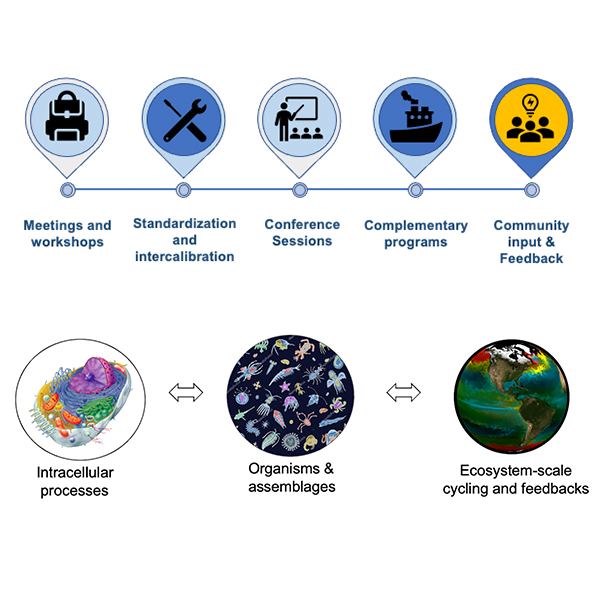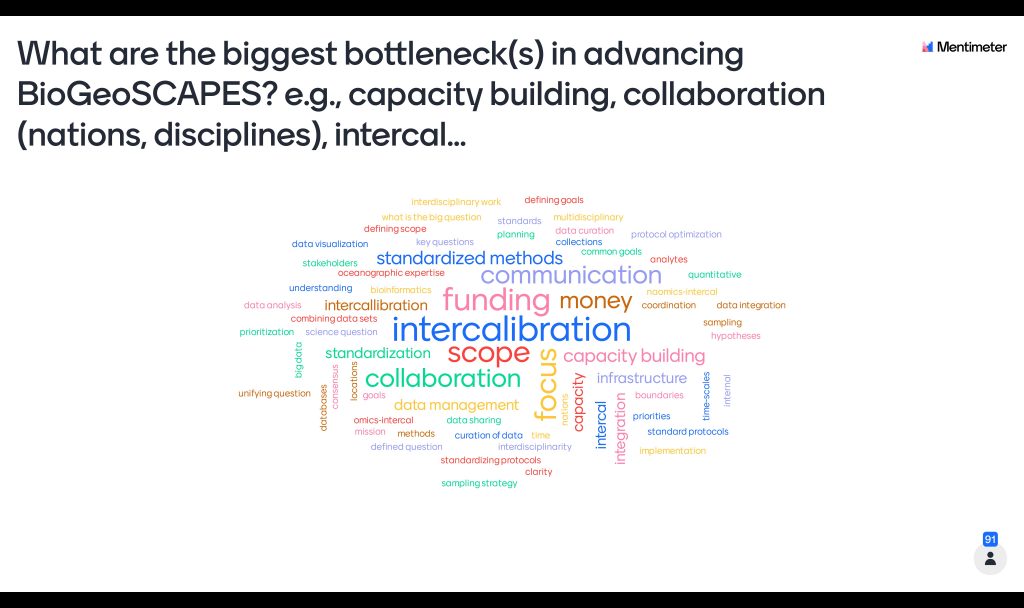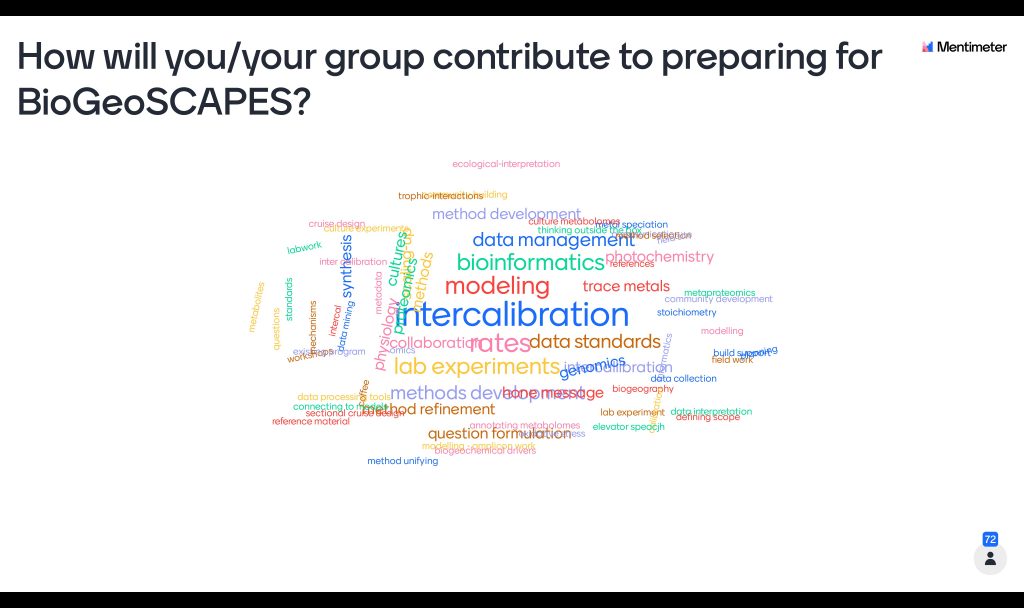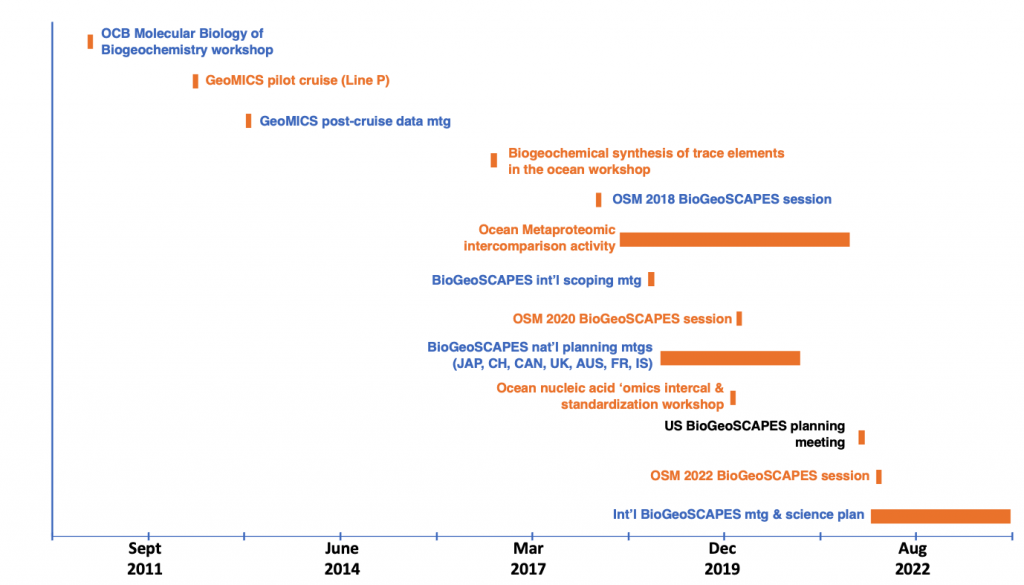OCB Scoping Workshop

BioGeoSCAPES (www.biogeoscapes.org) is an international initiative to integrate knowledge on marine microbial identity and physiology within frameworks of community ecology and global ocean biogeochemistry. The vision is an improved, predictive, and quantitative understanding of ocean metabolism on a changing planet can be achieved by combining detailed information on plankton cell status, biochemical processes, and species interactions with measurements of nutrient fluxes, concentrations, and chemical speciation (e.g., macronutrients, including inorganic and organic carbon, micronutrients and vitamins).

Fig 1. The BioGeoSCAPES development plan has incorporated numerous events and activities to enable scientific community building and feedback. Ocean metabolism is at the heart of the planetary support system. BioGeoSCAPES aims to examine ocean metabolism at the cellular, population, and ecosystem levels.
A scoping workshop held on November 8-10, 2018 (Woods Hole, MA) was a key step in the development of BioGeoSCAPES. The workshop included 28 participants from ten countries, each serving as ambassadors for their respective countries. Participants decided on the program name, mission statement, and strategic plan. Ambassadors were charged with organizing national meetings to share the idea and vision of the BioGeoSCAPES program with their national colleagues and discuss research priorities for the program. Since 2018, national meetings have been held in Japan, China, Canada, the United Kingdom, Israel, Australia, and France.
BioGeoSCAPES Mission
To improve our understanding of the functioning and regulation of ocean metabolism and its interaction with nutrient cycling within the context of a hierarchical seascape perspective
The US held their virtual national planning workshop on November 10-12, 2021, with 124 participants. The objectives of the meeting were to: a) communicate the current status of the international BioGeoSCAPES planning effort, b) engage US-based scientists from a range of disciplines who can help develop and champion the BioGeoSCAPES program, and c) identify US science priorities and ways to contribute to a US and international science plan.

Presentations provided an introduction to the initiative, updates on underway intercalibration efforts for ‘omics measurements, examples of BioGeoSCAPES-like research studies, and a summary of ongoing efforts and activities from international partners. Participants of all career stages shared their research and engaged with other workshop participants during two poster sessions in GatherTown. Multiple small-group break-out discussions sought input and feedback on community-building efforts and strategies, including potential barriers to interdisciplinary research and inclusivity, compelling questions and hypotheses that could be addressed by a BioGeoSCAPES program, needed intercalibration activities, and discussions on the kinds of research activities that could contribute to such a program. A report will be made available in the near future.

For more information on the workshop and to view recordings of the talks, please go to the OCB BioGeoSCAPES scoping workshop website. There are still ample opportunities for interested scientists at all levels to engage with the BioGeoSCAPES program. You can obtain more information and sign up for the BioGeoSCAPES Newsletter at https://www.biogeoscapes.org/.

Coming up: 2023 BioGeoSCAPES planning workshop – learn more on the biogeoscapes.org website




